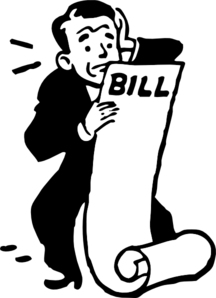I had a conversation with someone who has consistent financial troubles. I learned the main issues were a lack of sufficient income and money management skills. I began to offer suggestions such as searching for a higher paying job, limit eating out and carpooling to work. Unfortunately, every suggestion I gave was immediately shot down with what I considered to be an excuse. In the middle of the conversation I realized I wouldn’t be able to help this person. In hindsight, I don’t think the person wanted my help. It made me realize that some people aren’t truly ready to make improvements to their finances. If you want to improve your finances you have to be ready to get real. The first step is to take responsibility for making your situation better.
I began noticing a pattern when speaking to people about their money issues and concerns. What I heard was complaining about not having enough money and not getting ahead in life. The few times where I interjected and asked what they planned to do about it, I could tell my question was unexpected.
I pose the same question to you, if you are unhappy with your financial status, what do you plan to do about it?
Do you honestly want to put in the work required to generate change? Or are you hoping your money issues will work out on their own?
Do you believe that you can live a better life? Or do you quietly tell yourself that everyone struggles with money and you are no different?
Today I saw the quote, “In order to succeed, we must first believe that we can.”-Nikos Kazantzakis
The mind is an incredibly powerful tool. If you don’t have the correct mindset you can sabotage your journey before you even take the first step. You can be told over and over that it is possible for you to increase your quality of life and decrease your financial stress. However, it will never happen if you do not BELIEVE it can happen.
If you are having a hard time taking control of your finances and you think the task is too big, then start small. Set small obtainable goals and prove to yourself that getting a handle on your finances is possible. Your goal should have clear and measurable results.
For example, if you need to increase your savings, make a goal that every time you get paid you will put a certain amount into a savings account. You can start out small with $25 or 5% of your pay. Challenge yourself to do it for three months. Another goal could be to decrease the amount of money you spend on eating out. Allow yourself to eat out only once a week for a month.
The goal is for you to turn these trial practices into habits, but you have to take the first step. Once you have smaller challenges under control you can then begin to focus on your bigger financial problems. Remember you didn’t get into your current financial situation overnight. It may take some time to get you on the right path, but slow progress is better than no progress at all.
Continue to remain encourage and move towards progression. “If you believe it, you can achieve it”, may be cliché, but it holds a great deal of truth.




